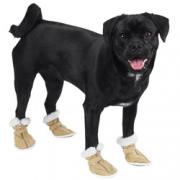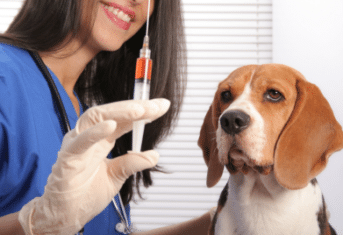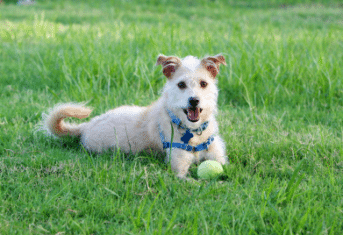Winter Pet Hazards

Winter Pet Hazards
The Arctic Express is moving through New York and the rest of the country in a little pre-holiday blitz. As a result of the low temperatures and last night’s freezing rain, this morning there was salt on all the sidewalks on my route to The Animal Medical Center reminding me it is time to talk about winter hazards for pets.
Salt and Ice Melt
Real salt (NaCl), or a calcium chloride salt substitute used in some ice melts, both contain chloride which is irritating to dog paws and stomachs if they lick the salt off their feet. Calcium chloride can generate enough heat to burn the skin on delicate paws. Several companies make a pet safe (salt and chloride free) ice melt. They are typically brightly colored pellets so dog owners can easily see where the salt has been spread. Morton’s is making an eco-safe/pet safe ice melt with plant fertilizer in it. PETCO also offers a non-tracking, pet safe ice melt
If you and your dog go on long walks and might encounter a non-pet friendly ice melt, you will need to wash your pet’s feet after the walk. You might also consider musher’s wax applied to the footpad or putting boots on your pet before a walk. Sled dog owners apply musher’s wax to the pads of their dog’s feet to provide a protective coating against ice and cold. Personally, I think the boots, which are like little balloons for dog feet, are really cute and the dogs I see wearing them don’t seem to mind. Here are some fun dog boots for the fashion conscious.
Frigid Temperatures
Dogs living outdoors in their own doghouse, a kennel or barn not only need a warm, snug place to sleep with some sort of bedding to keep them up off the cold ground, they also need food and water. When cold weather hits, your outdoor dog can get very hungry and thirsty if their food is outside and frozen. Check your outdoor dog’s food and water frequently to be sure it is edible and drinkable. If the water is frozen, get a dog water bowl heater or consider bringing your dog inside until the weather tempers a bit.
Stray Voltage
Every year there are frightening stories of dogs and their owners who are “shocked” by stray voltage on wet streets. The combination of salt, water and stray voltage from poorly insulated wiring on light posts or street and sidewalk electric boxes can be dangerous. Never tie your dog to a lamppost. To be safe, walk your dog a good distance away from these potential hazards and report any possible sources of stray voltage to the police or electric company. If your dog is the unfortunate victim of stray voltage (they usually cry in pain or collapse while walking near a light post or electric box on a wet or slushy day), it is important to get them to a veterinarian as quickly as possible. Street Zaps has other helpful information about protecting your entire family against stray voltage.
This blog may also be found in the “Tales from the Pet Clinic” blog from WebMD.
_________________________________________________
For nearly a century, The Animal Medical Center has been a national leader in animal health care, known for its expertise, innovation and success in providing routine, specialty and emergency medical care for companion animals. Thanks in part to the enduring generosity of donors, The AMC is also known for its outstanding teaching, research and compassionate community funds. Please help us to continue these efforts. Send your contribution to: The Animal Medical Center, 510 East 62nd Street, New York, NY 10065. For more information, visit www.amcny.org. To make an appointment, please call 212.838.7053.


































